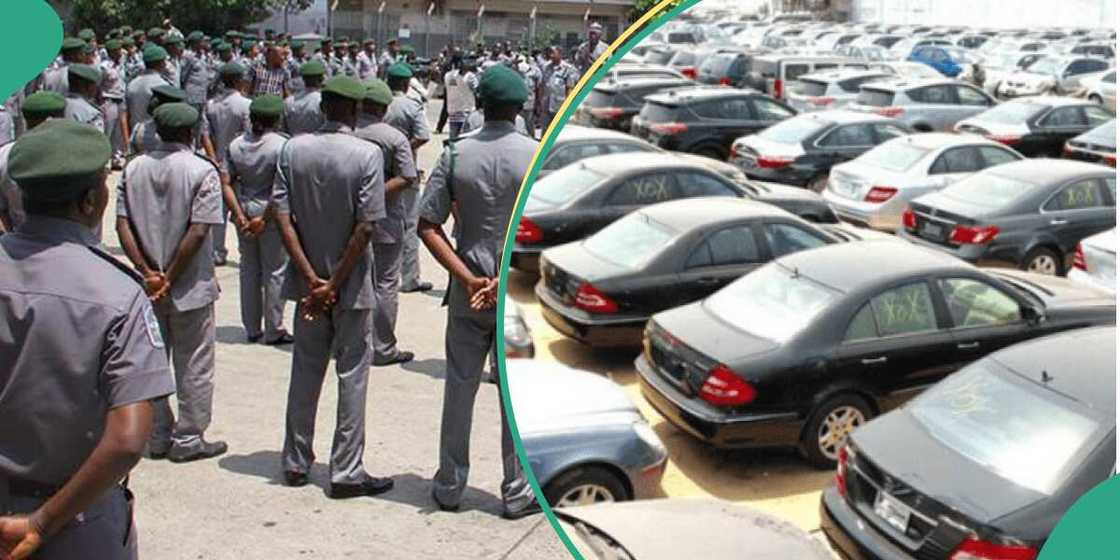Nigerian Customs Grants Importers 90-day Grace Period to Resolve Vehicle Importation Problems
- Nigeria Customs has introduced a 90-day window for importers to resolve vehicle importation problems
- The period covers imported vehicles with unsettled necessary customs duty or vehicles held due to undervaluation
- The initiative is aimed at proactively improving compliance and optimising import procedures within the country
PAY ATTENTION: The 2024 Business Leaders Awards Present Entrepreneurs that Change Nigeria for the Better. Check out their Stories!
Legit.ng journalist Victor Enengedi has over a decade's experience covering Energy, MSMEs, Technology and the stock market.
The Nigerian Customs Service (NCS) has introduced a 90-day opportunity for the adjustment of import duties concerning certain vehicle categories.
This adjustment process involves meticulously completing all importation paperwork and inspections to ensure compliance with the standards set by the federal government.
This is as the Central Bank of Nigeria (CBN) announced the slashing of the exchange rate for computing customs duties at the nation's seaports by 1.9%.

Read also
SEC introduces new guideline for cryptocurrency operations, others as Nigerians lose N500bn

Source: UGC
PAY ATTENTION: Share your outstanding story with our editors! Please reach us through info@corp.legit.ng!
The 90-day timeframe pertains specifically to vehicles brought into Nigeria where the necessary customs duty has not been settled or vehicles held due to undervaluation, as stated in a release on Sunday signed by Abdullahi Maiwada, the national public relations officer of the customs.
According to TheCable, this initiative, directed by Wale Edun, Minister of Finance and Coordinating Minister of the Economy, aims to improve compliance and optimise import procedures within the nation proactively.
Maiwada said:
“While we strive for inclusivity, it is important to clarify that vehicles seized and condemned will not be released under this arrangement and shall be forfeited to the federal government in accordance with extant regulations.
“All vehicle owners, Importers/Agents seeking to regularise import duties on their vehicles are required to apply to the Zonal Coordinators (Zones A, B, C, D) and CAC FCT Command.
According to Maiwada, importers must provide the requisite documents and undergo the Vreg process per the directives set forth by the Federal Ministry of Finance for registering imported motor vehicles.
He further explained that the valuation and assessment of the vehicles will be conducted utilising the VIN-valuation method.
He added:
"Import duty and a 25% penalty shall be paid in tandem with the import guidelines, procedures, and documentation requirements for used vehicles under the Destination Inspection Scheme in Nigeria (2013) and the Nigeria Customs Service Act 2023.
"The agency affirmed that this initiative reflects its steadfast dedication to fostering compliance, urging all stakeholders to take advantage of the opportunity before it expires."
Additionally, on February 23, 2024, the Central Bank of Nigeria (CBN) urged the NCS to align the foreign exchange (FX) rate used during the importation of goods with that applied during clearance within the country.
In January 2024, customs resumed the electronic auctioning of abandoned and seized cars and other goods, including consignments in containers that overstayed the ports.
Customs begins distribution of food items to Nigerians
In related news, Legit.ng reported that Customs had started the distribution of seized food items across Nigeria.
The comptroller-general of Customs, Adewale Adeniyi, stated that the Nigerian government had asked that the seized food items be distributed to ease Nigerians' current hardship.
The Customs boss emphasised that the service is collaborating with other agencies to distribute the seized food items directly to indigent Nigerians.
Adeniyi noted that the beneficiaries must provide a verifiable National Identification Number (NIN) to access the relief items.
PAY ATTENTION: Stay Informed and follow us on Google News!
Source: Legit.ng



